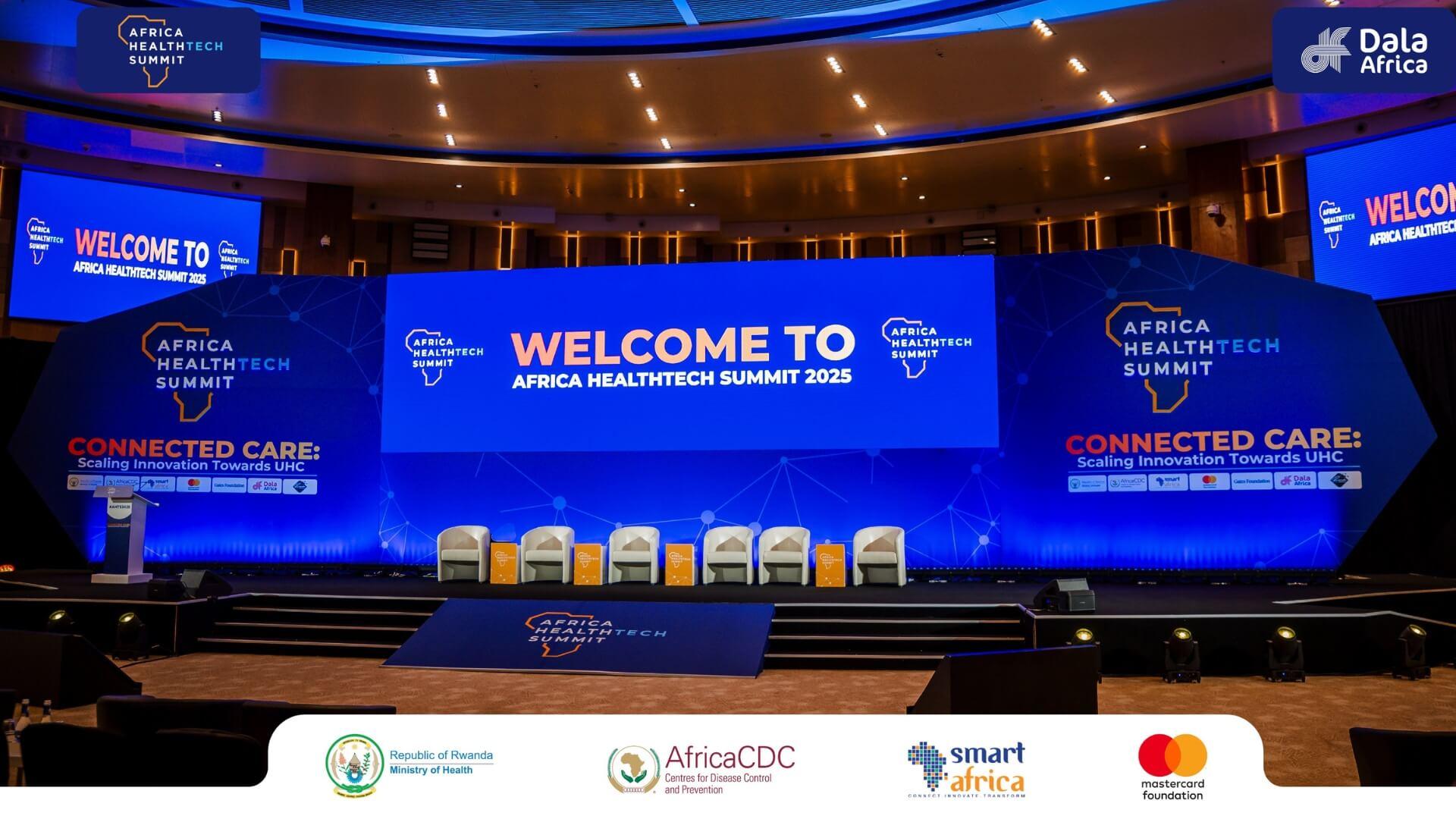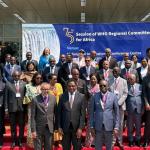Over 2,500 health experts, ministers, and tech innovators gathered in Kigali for the 4th Africa HealthTech Summit, showcasing AI-powered health solutions like Rwanda's new E-Ubuzima and E-Banguka apps while advancing continental strategies for Universal Health Coverage through connected digital health systems.
The fourth Africa HealthTech Summit gathered over 2,500 health experts, technology innovators, and policymakers at the Kigali Convention Centre to promote the continent’s digital health transformation under the theme “Connected Care: Scaling Innovation Towards Universal Health Coverage.”
Running from October 13–15, the three-day event reaffirmed its position as Africa’s top healthtech conference. It brought together Ministers of Health and ICT, national public health institutes, tech innovators, development partners, and investors, establishing Rwanda as a key hub for digital health dialogue across the continent.
Participants discussed how technologies like AI, cloud computing, IoT, robotics, drones, and blockchain can improve Africa’s health systems.
Rwanda’s Health Minister, Dr. Sabin Nsanzimana, opened the summit by calling artificial intelligence in medicine “the third historic medical breakthrough,” comparing it to vaccines (1796) and antibiotics (1928).
He highlighted AI’s potential to detect diseases early and support clinical decision-making throughout Africa.
Key highlights included Rwanda’s launch of E-Ubuzima and E-Banguka — two AI-driven platforms aimed at transforming healthcare delivery. E-Ubuzima digitizes medical records across all public health facilities, allowing real-time data sharing and replacing paper-based systems.
E-Banguka improves emergency response by providing real-time ambulance tracking and dispatch coordination.
Dr. Yvan Butera, Minister of State for Health, described these tools as enabling “seamless information sharing between community health workers, health centers, hospitals, pharmacies, and patients.”
All data are stored locally and managed through domestically developed systems, underscoring Rwanda’s commitment to homegrown digital solutions.
Africa CDC Deputy Director General Dr. Raji Tajudeen urged accelerated digital transformation, noting that most of Africa’s 55 countries — representing 1.5 billion people — are not on track to achieve Sustainable Development Goal 3.
He announced the Africa CDC’s Digital Health Transformation Agenda, designed to create a “connected, secure, intelligent, collaborative, and trusted ecosystem” linking disease surveillance, epidemic intelligence, and primary healthcare.
The summit also spotlighted the Africa HealthTech Marketplace, developed by Africa CDC and the Digital Impact Alliance, which provides tailored digital health solutions for member states based on access, cost, and infrastructure.
Africa CDC Director General Dr. Jean Kaseya described the platform as “a game-changer for healthcare in Africa.”
Government leaders from Kenya, Malawi, and Nigeria joined Rwanda’s delegation in emphasizing regional collaboration on digital health.
Kenya’s Health Cabinet Secretary Hon. Aden Bare Duale and Malawi’s Health Minister Hon. Khumbize Kandodo Chiponda discussed strategies to scale innovations across borders.
UN Resident Coordinator Ozonnia Ojielo outlined five UN priorities for Africa: strengthening primary healthcare, building resilient systems, scaling digital health records, advancing One Health surveillance, and promoting disability inclusion in health innovation.
Private sector leaders from Amazon Web Services, Roche Diagnostics, and Zipline Africa also demonstrated growing investment in African healthtech solutions.
Sessions addressed pressing health challenges, including maternal and child health, family planning, infectious and non-communicable diseases, immunization programs, and digital diagnostics.
Experts explored AI-based triage, connected diagnostics, point-of-care testing, and laboratory networks for improved outcomes.
Special emphasis was placed on gender equity, rural health access, and the links between poverty, education, and health.
Case studies highlighted successful public-private partnerships, innovative financing models, and regulatory frameworks that support technology adoption.
Post-summit activities on October 16 will include site visits and hands-on workshops showcasing Rwanda’s digital health systems.
Pre-summit events such as the Youth Digital Health Network and Member States Digital Health Forum ensured broad stakeholder engagement.
A special session, “Scaling Digital Health Together,” organized by the Digital Connected Care Coalition and Africa CDC, explored transformative partnerships and financing models to sustain digital health innovation across the continent.
Leave a comment
Your email address will not be published. Required fields are marked *





